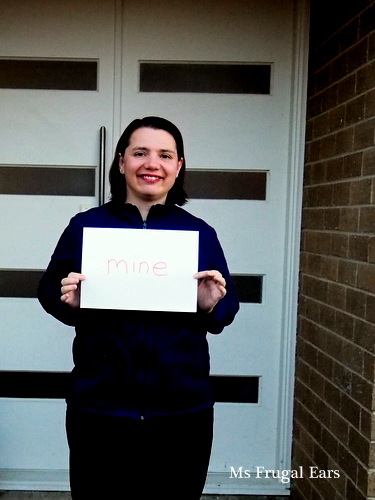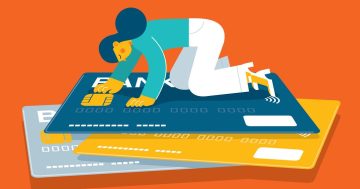
In January I announced on my blog that I would pay off my mortgage by Christmas 2016. Last week I caught up with two girlfriends for a frugal lunch. “How is your goal of paying off your mortgage going,” one of my friends asked me. “I’m on track,” I told her. There was some disbelief and she wanted to know how I was doing it. This is what I told her about how I am achieving my goal:

- I refinanced to a lower interest rate with UBank. I was previously paying 4.25% with another institution, which was comparatively low at the time and the service was also very good. As part of my property settlement, I had to refinance my property into my own name so I took the opportunity to look around for a good deal. I was already banking with UBank and already liked how their online system worked, and the fact that they are backed by NAB. In January when I refinanced they had one of the best products for a home loan – 3.99% (no fees or charges). It has since decreased to only 3.74%.
- I checked out online mortgage calculators to work out what I would need to repay to achieve my goal. There are a few calculators around, but I liked best the mortgage calculator on ASIC’s Money Smart website. Doing this really brought home to me the importance of how little tweaks like a slightly lower interest rate or additional repayments (even $100 extra a month) can have a profound effect in the amount of interest you pay over the life of the loan. I want to own my own home by Christmas so I worked out how much I would have to pay to do it. I go back to this calculator often when I need a bit of inspiration.
- I sold investment properties. OK, so I guess that having investment properties with an ex isn’t something that everyone has to draw on. “It’s lucky for some,” a work colleague sniped when I mentioned that one property sold for a record price (this was a blessing, in amongst all the divorce angst, and also helped offset the fact that the next one sold at a loss). I wasn’t born with a magic silver spoon, and neither was my ex. And neither of us were on super high incomes – in fact, I was the main income earner in our relationship. We did get some money from his mother (since repaid), but for the most part our 10 properties were acquired over a decade of working hard, living frugally and investing. Having homestay students for six years also helped. The little bits added up. It didn’t feel like we were making much progress at the time but now I can certainly see that it made a difference.
- I sold shares. I invested in Vanguard index funds last year. I invested 10% of my take-home pay into Vanguard last year, following The Richest Man from Babylon technique (a part of all you earn is yours to keep). I didn’t focus on paying off my mortgage last year as ownership only transferred into my name solely in January. I really like the Vanguard product and will likely invest again at another time. But right now the priority is owning my own home outright, so my focus is on that. I believe that with interest rates at a record low level it is also an ideal time to do so.
- I am earning extra rental income. I rent out a granny flat in my backyard. And from February, I have rented out a room in my home as well. “Aren’t you worried about lack of privacy,” people sometimes ask me. Others are more blunt and tell me that I am very brave and that they could never do that – privacy is too valuable and it would be too hard to trust having strangers in their home. Well there are two points here. Firstly, the rental income nets me up to $20,000 extra a year that I use to pay off my mortgage. Just stop and consider how many extra hours you might have to put in at work to earn that. Secondly, far from losing my privacy I love the warm community I have created by opening up my home. Before having housemates I felt lonely and isolated, and would sometimes wake up in the middle of the night worrying about intruders. Now my boys play with the son of my granny flat tenants, and they love playing board games with my housemate. From time to time we get together for a BBQ or a pot luck dinner – my previous housemate made the BEST chicken tikka.
- Scheduling regular, additional payments direct to my mortgage. I am still implementing The Richest Man in Babylon technique this year, and ensure I always pay myself first. I worked out what my mortgage repayments would be, then I added 10% of my take-home pay on top of that. Then, just for fun, I doubled it so I make mortgage payments once a fortnight rather than once a month. The payments are scheduled to come out of my UBank ultra account so I don’t have to do a thing. I never miss the money because I never had it. You adjust to what you have to spend. Simple.
- Whenever I make a saving, however small, I put it straight onto the mortgage. Every single time. Like last Wednesday, for example, I was standing in line at the cafe to buy a Florentine biscuit for $2.50 (I have long since given up takeaway coffees or teas). My work has one of the best cafe bakeries in Canberra. There are always temptations. “Do I really need this,” I asked myself. “It isn’t healthy and you want to reduce weight.” Too right. So while a part of me inwardly whinged that I ‘deserved’ a treat, the more virtuous side of me marched myself back up to my desk, ate a banana instead, logged onto internet banking, and transferred $2.50 to my mortgage via BPay. This might not sound like a lot, but over the course of a month all the little savings really add up. On average I save around $1,000 a month this way – last month I saved $2,800. Not just by avoiding eating biscuits but by bigger things, too (e.g. refunds from visits to the doctor, negotiating better prices on products, or even better, discovering I didn’t really need to spend money on something and not buying it).
- Monitoring how my mortgage balance is coming down. I think the real power to how regularly transferring small savings to the mortgage works is that I am constantly focusing on my goal. Sometimes I log onto UBank more than once a day, and the first thing I always do is look at that magic number of the amount still owing on my mortgage. I am noticing how regular, small additional repayments really do make a difference. It is so exciting. So when for example I am standing in ALDI looking at Egyptian cotton sheets and imagining how much nicer they would look on my bed than the faded Elvis blue ones with mismatched pillow cases I currently have, the image of that magic UBank mortgage graph and the magic mortgage number comes up and urges me to gently walk away. I am so close to achieving my mortgage repayment goal now, and I really want it.
- Reducing my grocery budget to below $10 a day. I don’t find this too onerous, and I believe we eat very well. I am certainly good at cooking meals that cost $5 to prepare. Last month my spending was just over $11 a day, but it averaged just over $8 a day for the last two months. And would you believe my cupboards are STILL bulging and my freezer is completely stocked. I am finding that I seem to attract food. I guess people know I am frugal, so they tend to give me things. Which I always receive with gratitude. And I am great at spotting items on special, and reducing food costs by homemade and other options.
- Earning extra income from writing. OK, so I am not earning enough to quit my day job (yet), but I am grateful for the validation that I am a professional writer. I love the feeling of transferring my creativity into writing, and how my writing income is in turn helping me own my own home. And I am visualising the small trickles of money that I am earning from my writing turning into a fast flowing river (or perhaps even an ocean).
Using all of these methods, at the half-way point I am on track to meet my Christmas target. It will still be tight, but I have confidence I will get there. That’s the thing about focusing on a goal using the Law of Attraction: when you are clear about what you want, and focused in gratitude on receiving it, somehow the universe provides. Each and every time.
Are you focused on paying off your mortgage? Or have you paid it off already? If so, what methods did you use?





















